With strengths in library and archives innovation, experiential design, online and social media communities, sociotechnical and cultural technologies.
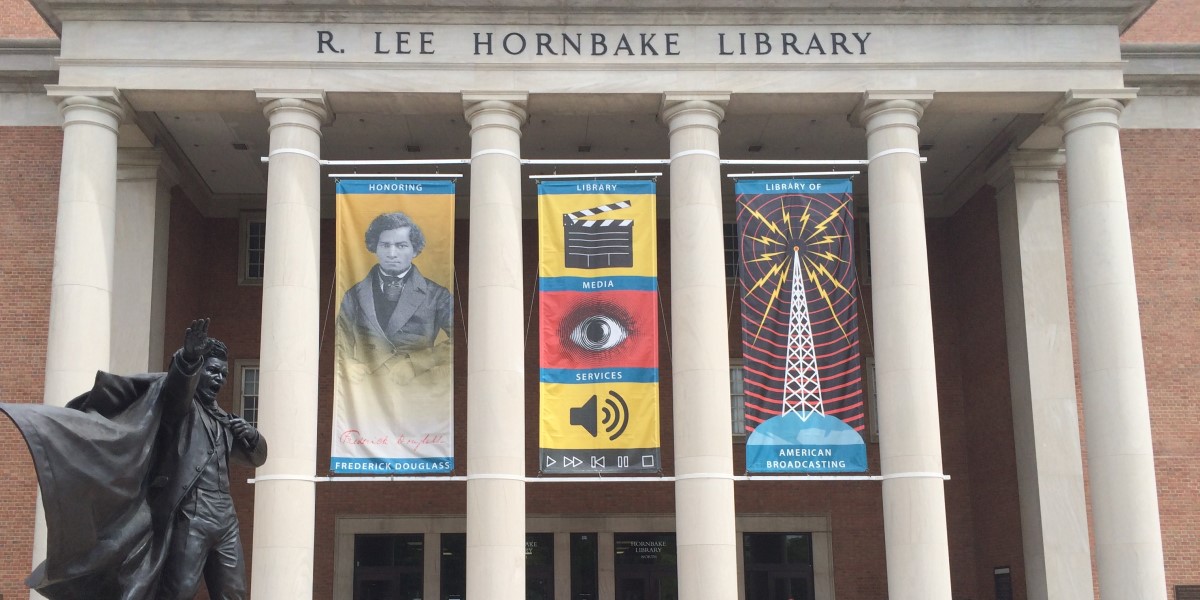
The College of Information Studies (UMD Info College) announced today eleven new faculty hires – four tenure track and seven professional track – to join its expanding roster. The new faculty, who joined between August 2021 and August 2022, together bring expertise in crisis informatics, social data science, the DE&I implications of sociotechnical cybersecurity and information organization systems, experiential and immersive media and design, human-computer interaction and educational technology development.
Alongside existing faculty and researchers at the College, they will address some of today’s most pressing information and archival challenges, such as improving the resiliency of online information ecosystems in the face of mistrust, co-designing with community residents to amplify their local efforts to support education and civic engagement, and examine the use of defensive information behaviors to protect against systemic institutional harm and cyber security threats. They will also work to prepare students to create rich data-driven solutions that affect decision making and policy, help libraries engage with their communities, especially those in crisis, and design cutting-edge tools and technologies for good.
“We’re delighted that these new faculty members have joined us. They will support strategic directions of the college, including our two new undergraduate majors, our support of our young faculty in developing strong research portfolios, and our research interests in cognitive security, designing technology and policy for and with underserved communities, and addressing information marginalization, trust, and safety online, and in health and learning institutions.” says Keith Marzullo.
The UMD Info College looks forward to continued growth with the addition of this new faculty group. Meet the new faculty members:
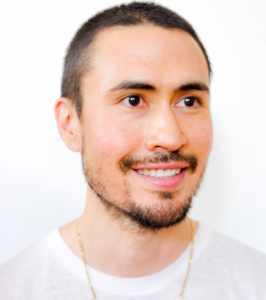 Jason Aston, M.P.S.
Jason Aston, M.P.S.
Joined the UMD iSchool in August 2021 as a lecturer in design
Many emerging technologies and novel, immersive contributions are continuously expanding the fields of art and design. Jason Aston is an educator, designer, artist, and entrepreneur with a deep focus in the areas of technology, data, storytelling and experiential/emerging media. He has exhibited in various museums, galleries, exhibitions and institutions worldwide, including Oi Futuro in Rio de Janeiro, Brazil, IAC Center in New York City, and the Museum of Science in Queens, New York. He has served in many creative and technology positions on major works of note, including the Moon by Ai WeiWei and Olafur Eliasson and Aabode, a forthcoming, frictionless home-buying tool that aims to bring more potential but marginalized homeowners into the benefits of property equity. As a founding member of Collab NYC, a non-profit collaborative art/technology organization operating out of Brooklyn, Jason parlays his creative technology expertise into fully-realized, built projects and installations driven by projection, fabrication, and immersive techniques. He is involved in teaching expressive visual and data design within the context of human-computer interaction (HCI) emphasizing exploratory form and storytelling.
M.P.S., Interactive Technology, New York University
Previously: Adjunct, Parsons School of Design – The New School
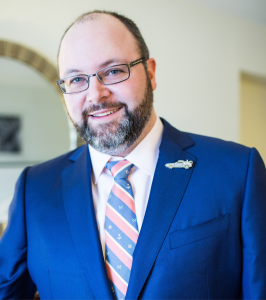 Cody Buntain, Ph.D.
Cody Buntain, Ph.D.
Joined the UMD iSchool in January 2022 as an assistant professor with a focus on social data science
Making the online information ecosystem a more informative, higher-quality space is critical to enhancing its resilience to manipulation. Dr. Buntain’s work examines how people use online information spaces during crises and political unrest, with a focus on information quality. He is a research affiliate for NYU’s Center for Social Media and Politics, where he studies online information and social media. His work in these areas has been covered by the New York Times, Washington Post, WIRED, Business Insider, and NBC. As an educator, Dr. Buntain’s teaching philosophy is driven by student leadership, bridging disciplines, and exploring the unconventional. His teaching experience spans several institutions, as he has developed and led four courses as an adjunct professor at American University (AU) and UMD and led the updating of three courses at NJIT. Prior to earning his PhD, Dr. Buntain ran the research division for a small defense contractor that specializes in cybersecurity.
Ph.D., Computer Science, University of Maryland, College Park
Previously: Assistant Professor, New Jersey Institute of Technology (NJIT); Fellow at the Intelligence Community Postdoctoral Fellowship
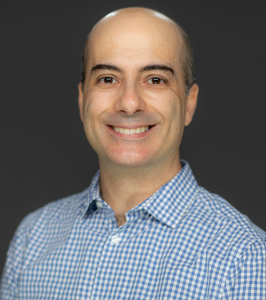 Giovanni Luca Ciampaglia, Ph.D.
Giovanni Luca Ciampaglia, Ph.D.
Joining the UMD iSchool in August 2022 as an assistant professor with a focus on sociotechnical cybersecurity
The massive spread of digital misinformation has become a major threat to democracies. To address these threats and the cybersecurity challenges that coincide, researchers must look at how technology and its users overlap. Dr. Ciampaglia is interested in problems originating from the interplay between people and computing systems, determinants of information quality in cyberspace, and how information propagates across social networks, with application to the integrity of information in cyberspace, and the trustworthiness and reliability of social computing systems. Dr. Ciampaglia was the recipient in 2013 of a mobility fellowship from the Swiss National Science Foundation to receive postdoctoral training at the Center for Complex Networks and Systems Research at Indiana University, Bloomington. He later joined the Indiana University Network Science Institute as an assistant research scientist until 2018. Prior to his postdoc, he was an analyst for the Wikimedia Foundation and a research associate at the Professorship of Computational Social Science at the Swiss Federal Institute of Technology in Zurich, Switzerland. His work has been covered in major news outlets, including the Wall Street Journal, Wired, MIT Technology Review, NPR, and CBS News, to cite a few.
Ph.D., Computer Science, University of Lugano, Switzerland
Previously: Assistant Professor, Department of Computer Science and Engineering and Director of the Computational Sociodynamics Laboratory, University of South Florida
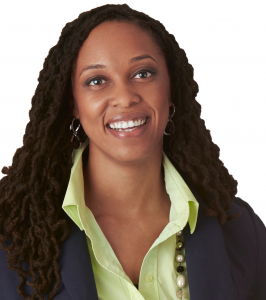 Sheena Erete, Ph.D
Sheena Erete, Ph.D
Joining the UMD iSchool in August 2022 as an associate professor with a focus on human-computer interaction
How can we develop better technologies and policy to counter structural oppression? Dr. Erete is a researcher, educator, designer, and community advocate, whose research focuses on co-designing socio-cultural technologies, practices, and policies with community residents to amplify their local efforts in addressing issues such as violence, education, civic engagement and health. The objective of her work is to create more just and equitable outcomes and futures for those who have historically and who currently face structural oppression. Examples of her most notable works have been the co-design of mobile technologies to support street outreach workers for violence prevention and co-founding Digital Youth Divas, an out-of-school program aimed at encouraging Black and Latina middle school girls and their families to engage in science, technology, engineering, arts, and math (STEAM). Her research has won several best paper awards in top venues such as ACM CHI, CSCW, and SIGCSE as well as a diversity and inclusion award for her collaborative work dissecting oppression that exists in the field of computing, HCI, and design.
PhD, Technology & Social Behavior, Northwestern University
Previously: Associate Professor, College of Computing and Digital Media (CDM), DePaul University, co-director of the CDM Technology for Social Good Research and Design Lab
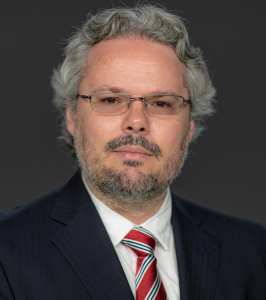 Diego Fregolente Mendes de Oliveira, Ph.D.
Diego Fregolente Mendes de Oliveira, Ph.D.
Joined the UMD iSchool in January 2022 as an assistant research scientist in social data science
For ambitious researchers, winning prestigious grants can be career making, but a growing disparity in funding awarded to men compared to women provides another obstacle for women in science. Dr. Oliveira is interested in quantifying diversity, equality and inclusion in different fields of science, and understanding the mechanics behind the diffusion of low and high quality information in online social networks. Dr. Oliveira has published several works on these topics and has been covered in major news outlets, including the New York Times, Reuters, the Huffington Post, the Smithsonian to cite a few. At the College of Information Studies, he will be working with faculty and researchers at the Social Data Science Center (SoDa) to address the unique challenges of working with social and behavioral data at ever increasing scales. Additional roles Dr. Oliveira held prior to UMD include Research Scientist at the Rensselaer Polytechnic institute/Army Research Lab, and a Postdoctoral Fellow at Northwestern and Indiana Universities.
Ph.D. Physics, University of Maribor (Slovenia)
Previously: Postdoctoral Research Associate, University of North Carolina at Chapel Hill
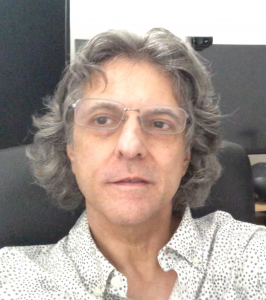 Dennis Frezzo, Ph.D.
Dennis Frezzo, Ph.D.
Joined the UMD iSchool in August 2021 as a senior lecturer in human-computer interaction and instructional technology lead
Identifying, designing, and implementing hardware, software, and network solutions is a critical step towards addressing modern teaching and learning challenges. Dr. Frezzo has teaching experience in electronics, robotics, physics, networking, Internet of Things (IoT), connected products, and user-centered design, and has co-designed a variety of learning environments including labs and makerspaces. At Cisco, Dr. Frezzo led a team that applied the learning sciences to the rapid prototyping of learning tools for the Cisco Networking Academy program. He has taught successfully at the university, community college, and high school levels. Recently, he helped design the iSchool’s IoT Lab and networking studio, which will support a variety of student activities like building small working models of home LANs, ISP Tiers, cloud services, and end-to-end IoT and cybersecurity systems. He enjoys the opportunity to influence student journeys of lifelong learning and supports the iSchool’s efforts at diversity, equity, inclusion, and belonging, with a particular interest in supporting LGBTQ+ students.
Ph.D., Educational Psychology, University of Hawaii at Manoa
Previously: Senior Learning Scientist, Cisco; Adjunct Lecturer, College of Information Studies, University of Maryland, College Park
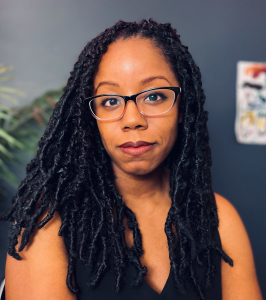 Amelia Gibson, Ph.D.
Amelia Gibson, Ph.D.
Joining the UMD iSchool in August 2022 as an associate professor with a focus on library and information science
For libraries to live up to their core values, they must engage with their communities, especially those in crisis. Dr. Gibson studies information marginalization, trust, and safety online, and in health and learning institutions (libraries and education), with a special focus on maternal health equity and disability justice. Her current work focuses on connections between personal assessments of danger/risk and marginalized people’s use of defensive information behaviors to protect self, family, and community from institutional harm. Additionally, Dr. Gibson is a researcher with the Postnatal Patient Safety Learning Lab, where she does research on information needs of birthing people in clinical and community settings, patient-provider communications, trust, and safety. She is a faculty affiliate with the Center for Information Technology and Public Life and NYU’s Center for Critical Race and Digital Studies. Dr. Gibson is a recipient of a Laura Bush 21st Century Librarian IMLS Early Career grant from the U.S. Institute of Museum and Library Services (IMLS). Alongside her role as an associate professor at the Info College, she will step into the Associate Director role for the Information Policy and Access Center (iPAC).
PhD, Information Studies, Florida State University
Previously: Associate Professor and Director, Community Equity, Data and Information Lab (CEDI) and School of Information and Library Science, University of North Carolina at Chapel Hill
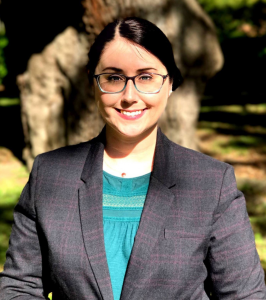 Jesse Klein, Ph.D.
Jesse Klein, Ph.D.
Joining the UMD iSchool in August 2022 as a lecturer in data science
The emphasis on data-driven storytelling and decision-making has shaped the landscape for the future of data science and data analytics. As a lecturer, Dr. Klein has taught courses in social science research methods, social statistics, information literacy, and popular culture. As a data librarian, she developed and provided training on the research lifecycle, analysis programming, and worked directly with various stakeholders to provide reference, instruction, and consultations on a range of topics related to research data services. In addition to conducting various research projects in the academy and the community, Jesse is also an experienced grant writer for social justice nonprofit organizations and local government initiatives focused on women, girls, survivors of domestic violence, and reentry efforts for formerly incarcerated individuals. She works as an assistant research scientist at the Social Data Science Center (SoDa) at UMD to advance high quality data and measurement critical for progressing many domains, i.e. healthcare, education, climate, policy making, and government.
Ph.D. in Sociology, Florida State University
Previously: Associate University Librarian, Social Sciences Research & Data Librarian, Department of Social Sciences, Arts, & Humanities, Florida State University Libraries
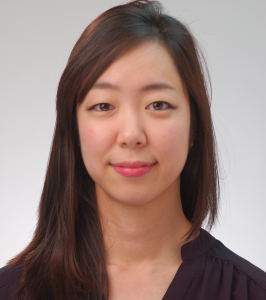 Heera Lee, Ph.D.
Heera Lee, Ph.D.
Joining the UMD iSchool in August 2022 as a lecturer in human-computer interaction
Public speaking can be nerve wracking, especially if you’re speaking to an audience in your non-native language. It can also be difficult for educators to identify these anxieties among their multilingual students. Since successfully completing her dissertation on these topics, Dr. Lee continues to investigate contributing factors to the public speaking anxiety and foreign language speaking anxiety among English language learners by analyzing their cognitive self-report, non-verbal behaviors, and physiological data, including electrodermal activity to help instructors provide personalized emotional and instructional scaffolding for each student. Her additional research interests lie at the intersection of Human-Computer Interaction (HCI), educational technologies, and affective computing for English language learners (ELLs) from diverse cultures. These interests stem from her 4-year teaching experience as an instructor in the English Language Institute and 2-year Teaching Assistant in undergraduate programs at University of Maryland, Baltimore County.
Ph.D. Human-Centered Computing, University of Maryland, Baltimore County
Previously: Adjunct, Computer and Information Sciences, Towson University
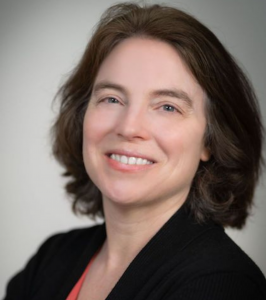 Polly O’Rourke, Ph.D.
Polly O’Rourke, Ph.D.
Joined the UMD iSchool in January 2022 as the Director of Research Development
Dr. O’Rourke’s expertise lies in cognitive psychology, neuroscience, and second language acquisition. Before joining the UMD Info College, Dr. O’Rourke worked with UMD’s Center for Advanced Study of Language (CASL) and the Applied Research Lab for Intelligence and Security (ARLIS) as an Associate Research Scientist. In 2017, she won an $8M contract, including $1M in plus ups for additional work, awarded by the DARPA Targeted Neuroplasticity Training (TNT) program to lead a multi-disciplinary, multi-institutional team to study the effect of peripheral nerve stimulation on second language acquisition and brain plasticity. She was also a key contributor to the Cyber Aptitude and Talent Assessment (CATA) tool to improve selection for DoD cyber security training (2015-2017), which was the UMD Information Sciences Invention of the Year in 2019.
Ph.D. Philosophy, Linguistics, University of Arizona
Previously: Associate Research Scientist, University of Maryland Applied Research Lab for Intelligence and Security
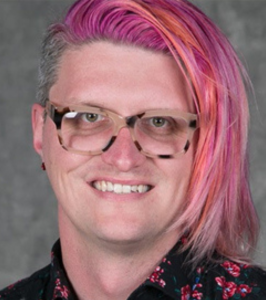 Travis L. Wagner, Ph.D.
Travis L. Wagner, Ph.D.
Joining the UMD iSchool in August 2022 as a lecturer in archival studies
The continued rise in transgender and gender non-binary identities has challenged information professionals to make better their commitments to equitable access and inclusion. Dr. Wagner’s primary research and teaching interests include critical information studies, queer archives, and LGBTQIA+ advocacy in sociotechnical systems. Their research examines how these communities produce and create identity in opposition to sociotechnical systems that limit and essentialize those identities. Additionally, Wagner works with various community organizations to build and maintain digital collections reflective of complex, often silenced, histories, and to explore archival pedagogy through service-learning classes that have worked with feminist activist organizations, queer media archives, and community arthouse theaters. Multiple projects within classrooms and community work have led to Dr. Wagner exploring and publishing the unique relationships between obsolete archival mediums and queer counter-historical work across archival contexts. Their recent publications include articles in the Journal of Information Science, Artifact & Apparatus, and the Journal of the American Medical Informatics Association. They are also the co-creator of the Queer Cola Oral History and Digital Archive.
Ph.D., Information Science, School of Information Science, University of South Carolina
Previously: Postdoctoral fellow, Info College’s Center for Archival Futures (CAFe) and the Recovery and Reuse of Archival Data (RRAD) Lab